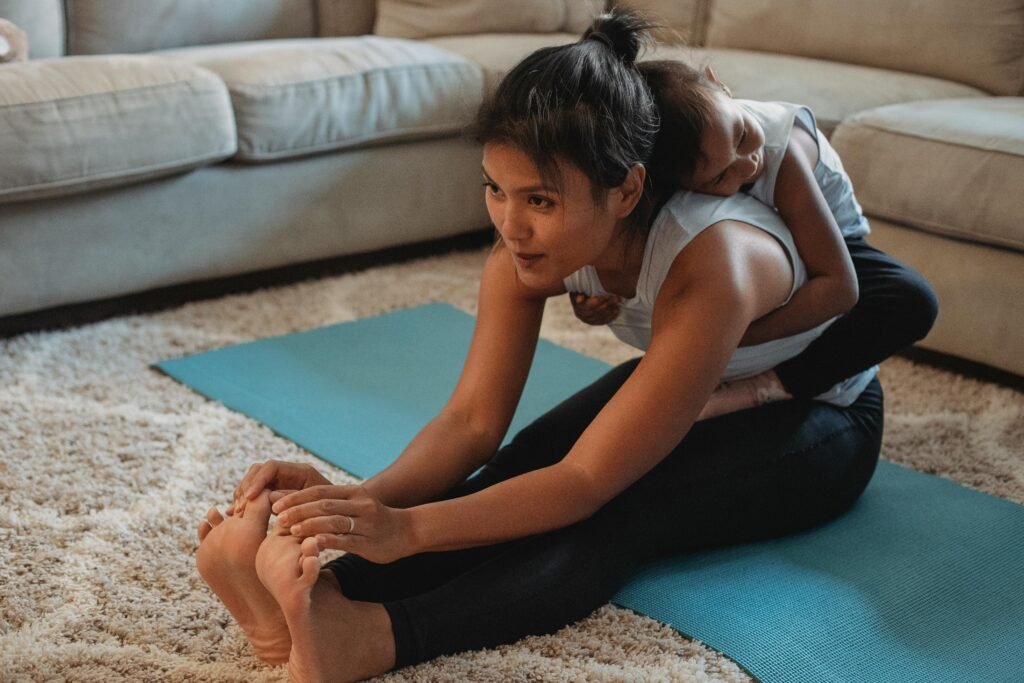
Introduction
Improving your personality is a worthwhile endeavor that can positively influence every aspect of your life.
From enhancing your social interactions to boosting your career prospects, the benefits of personality development are far-reaching.
While the concept might seem abstract, it’s rooted in tangible actions and attitudes you can cultivate over time.
First, it’s important to understand that personality improvement is not about changing who you are at your core.
Instead, it’s about refining your existing traits and adopting new, beneficial habits.
Think of it as a journey of personal growth where every step brings you closer to your best self.
One of the most impactful ways to start is by practicing self-awareness.
When you understand your own strengths and areas for improvement, you can make conscious choices that lead to personal growth.
For instance, if you know you’re prone to impatience, you can work on developing more patience, which will benefit both your personal and professional relationships.
Another critical component is enhancing your communication skills.
Effective communication isn’t just about talking; it’s about listening and engaging in meaningful interactions.
Whether it’s through better verbal expression or improving your body language, strong communication skills are fundamental to building lasting connections.
Cultivating a positive attitude is equally essential.
Positivity doesn’t just make you more pleasant to be around; it also helps you navigate life’s challenges more effectively.
By focusing on gratitude and surrounding yourself with positive influences, you can create an uplifting environment that benefits both you and those around you.
Empathy is another key trait to nurture.
Understanding and sharing the feelings of others can deepen your relationships and create a more compassionate world.
This is especially important in today’s diverse society, where empathy can bridge gaps and foster understanding.
Resilience is the backbone of a strong personality.
Life is full of ups and downs, and your ability to bounce back from setbacks will shape your character.
Building resilience involves setting realistic goals, practicing self-care, and learning to adapt in the face of adversity.
Lastly, staying open to continuous learning keeps your mind active and engaged, ensuring that you’re always growing.
Whether it’s through books, courses, or new experiences, a commitment to learning can significantly enhance your personality.
So, are you ready to take the first step on this rewarding journey?
Practice Self-Awareness

Self-awareness is crucial for personal development. It helps you understand your strengths and areas needing improvement, which can lead to a more balanced personality.
To boost your self-awareness, start by regularly reflecting on your actions and thoughts.
Consider keeping a journal where you can jot down your daily experiences and feelings.
This practice can help you identify patterns and gain deeper insights into your behavior.
Another effective method is to seek feedback from trusted friends or mentors.
They can offer perspectives you might not have considered, helping you see yourself more clearly.
Be open to constructive criticism and use it as a tool for growth rather than a source of discouragement.
Mindfulness exercises, such as meditation or deep breathing, can also enhance your self-awareness.
These practices encourage you to stay present and tune into your inner state, making you more attuned to your reactions and emotions.
Over time, mindfulness can help you manage stress and make more thoughtful decisions.
Additionally, consider setting aside time for self-reflection at the end of each day.
Ask yourself questions like, “What did I do well today?” and “What could I improve tomorrow?”
This daily check-in can be a powerful way to stay aligned with your personal growth goals.
Lastly, learning about different personality traits and how they manifest in various situations can offer valuable insights.
Understanding these traits can help you identify which aspects of your personality you want to develop further and which ones might need a bit of fine-tuning.
Enhance Your Communication Skills

Effective communication is crucial for personal development.
Start by focusing on active listening.
Give the speaker your full attention, nod occasionally, and avoid interrupting.
This not only shows respect but also helps you understand their point of view better.
Next, work on your verbal skills. Practice speaking clearly and confidently.
Use a varied tone to keep your audience engaged.
Try to avoid filler words like “um” and “uh” as much as possible; they can make you appear uncertain.
Non-verbal communication is equally important.
Maintain eye contact to show you’re engaged, and use appropriate gestures to emphasize your points.
Your body language should be open and inviting; crossed arms can make you seem defensive or uninterested.
Feedback is invaluable for improving communication.
Ask friends or colleagues to give you constructive criticism on your speaking habits.
Whether it’s about your tone, pace, or choice of words, this feedback can offer valuable insights you might miss on your own.
Role-playing exercises can be particularly helpful.
Practice common scenarios, such as job interviews or difficult conversations, to become more comfortable and articulate in various settings.
Consider joining a public speaking club like Toastmasters.
These groups offer a supportive environment where you can practice your speaking skills and receive helpful feedback.
They can also provide opportunities to speak in front of an audience, which can significantly boost your confidence.
Another useful tool is to record yourself speaking. Play it back to identify areas where you can improve, whether it’s your tone, pace, or clarity.
Finally, keep in mind that effective communication is a two-way street.
Make an effort to be clear and concise, but also be receptive to others’ input and feedback.
This balanced approach will make your interactions more meaningful and effective.
Cultivate Positivity

Positivity can profoundly influence your personality, making you more approachable and resilient.
Start by practicing gratitude daily.
Take a moment each day to acknowledge the good in your life, no matter how small.
This simple habit can shift your focus from what’s wrong to what’s right, uplifting your mood and overall outlook.
Surround yourself with positive influences.
Choose friends who inspire and uplift you.
Engage with motivational content, whether it’s books, podcasts, or even social media accounts that promote a positive mindset.
These external sources of positivity can bolster your internal state.
It’s also essential to engage in activities that bring you joy and fulfillment.
Whether it’s a hobby, exercise, or spending time with loved ones, doing what makes you happy naturally boosts your positivity.
These moments of joy can act as a buffer against stress and negativity.
Another effective technique is to reframe negative thoughts.
When you catch yourself dwelling on something negative, try to find a positive angle or a lesson to learn.
This doesn’t mean ignoring challenges but rather viewing them through a lens of opportunity and growth.
Positive affirmations can be a powerful tool as well. Start your day by telling yourself positive statements like “I am capable,” “I am worthy,” or “I am improving.”
These affirmations can set a positive tone for the day and reinforce a healthy self-image.
Lastly, be mindful of your internal dialogue.
Treat yourself with the same kindness and encouragement you would offer a friend.
Self-compassion can significantly impact your overall positivity and, in turn, your personality.
By integrating these practices into your daily routine, you’ll find it easier to maintain a positive outlook, which will enrich your personality and make you more resilient to life’s ups and downs.
Embrace Empathy

Understanding and sharing the feelings of others can greatly enrich your personality.
To cultivate empathy, start by practicing active listening without jumping to conclusions.
Truly focus on what the other person is saying, and acknowledge their feelings.
Ask open-ended questions like, “How did that make you feel?” to encourage them to share more.
Another way to build empathy is to step outside your comfort zone and expose yourself to diverse experiences.
Volunteer or participate in community service projects to interact with people from different backgrounds.
These interactions can give you new perspectives and a deeper understanding of the challenges others face.
Reading fiction can also enhance your empathy.
When you dive into a character’s world and experiences, you practice putting yourself in someone else’s shoes.
Similarly, watching documentaries or listening to personal stories can offer valuable insights into the lives of others.
Additionally, practice mindfulness to become more attuned to the emotions of those around you.
By being present and observant, you can pick up on non-verbal cues like body language and facial expressions, which can give you a fuller picture of someone’s emotional state.
Reflect on your own experiences and how you felt in various situations.
This can help you relate to others going through similar circumstances.
Sometimes, sharing your own stories can create a bridge of understanding and make others feel heard and validated.
Lastly, show compassion in your daily interactions.
Small acts of kindness, like offering a supportive word or lending a helping hand, can make a big difference.
Compassion fosters an environment where empathy can flourish, enriching both your life and the lives of those around you.
Develop Resilience

Resilience is essential for navigating life’s challenges and can significantly influence your personality.
Think of it as the ability to bounce back and keep moving forward, no matter what comes your way.
To develop resilience, start by setting realistic and achievable goals.
Break these goals down into manageable steps so that each small success builds your confidence and momentum.
Self-care is crucial for resilience. Incorporate activities that recharge you, whether it’s exercise, hobbies, or spending time with loved ones.
Physical activity, in particular, is a great way to boost your mood and energy levels, making it easier to handle stress.
Practicing gratitude can also enhance your resilience.
By focusing on what you’re thankful for, you create a mental buffer against negative thoughts and emotions.
This positive outlook can help you maintain perspective during tough times.
It’s also important to learn how to manage stress effectively.
Techniques such as deep breathing, meditation, or even a short walk can help you regain calm and focus.
Developing these coping mechanisms prepares you to deal with stress before it becomes overwhelming.
Flexibility is another key component. Life is unpredictable, and your ability to adapt to changing circumstances can determine how well you navigate through them.
Embrace change as an opportunity for growth rather than a setback.
Being open to new approaches and solutions can make you more resilient in the face of adversity.
Connecting with others can provide emotional support and practical advice when you’re going through a tough time.
Don’t hesitate to reach out to friends, family, or even professional counselors if needed.
Building a strong support network can make a significant difference in your ability to cope with challenges.
Lastly, reflect on past experiences where you’ve overcome difficulties.
Recognize the strengths and strategies that helped you succeed.
By understanding your own resilience patterns, you can apply them to future challenges more effectively.
Stay Open to Learning

Keeping your mind engaged and curious is key to personal growth.
Think of learning as an adventure that never truly ends.
To keep your brain buzzing, dive into books that pique your interest or explore new topics you’ve always been curious about.
Online courses are a fantastic resource; platforms like Coursera or Udemy offer a plethora of subjects ranging from business to creative arts.
Workshops and seminars also provide hands-on experiences that can be incredibly enriching.
Whether it’s a cooking class or a leadership seminar, the skills you gain will add layers to your personality.
Don’t underestimate the power of learning from those around you.
Engage in conversations with people who have different perspectives or expertise.
Their insights can offer you new ways of thinking and problem-solving.
Being a lifelong learner also means being open to feedback.
Constructive criticism can be a goldmine of information that helps you fine-tune your actions and decisions.
Documentaries and podcasts can be both entertaining and educational.
These formats allow you to learn on the go, whether you’re commuting or doing chores.
Keep a list of recommendations and challenge yourself to explore topics outside your comfort zone.
Another fun way to stay mentally active is by picking up new hobbies.
Whether it’s learning to play a musical instrument or taking up gardening, hobbies can be a great way to keep your brain engaged and your spirits high.
Remember, staying open to learning is not just about gaining knowledge; it’s about adopting a mindset that values growth and improvement.
Embrace the excitement that comes with discovering something new, and let your curiosity guide you.
Nurture Relationships

Healthy relationships are foundational to a vibrant personality.
They offer emotional support, encouragement, and a sense of connection that enriches our lives.
To nurture these relationships, make it a priority to spend quality time with the people you care about.
Whether it’s a weekly coffee date or a simple phone call, consistent interaction helps strengthen bonds.
Effective communication is key. Be open and honest in your conversations, and listen attentively when others speak.
This two-way street fosters mutual understanding and trust.
Express your appreciation regularly; a simple “thank you” or a heartfelt compliment can go a long way in making others feel valued.
Acts of kindness and support also play a significant role.
Offer help when needed, whether it’s assisting with a task or providing emotional support during tough times.
These gestures demonstrate your commitment to the relationship and build a strong foundation of reciprocity.
Respect boundaries and understand that everyone needs their own space and time.
Being considerate of each other’s needs creates a healthy dynamic where both parties feel respected and valued.
Don’t shy away from addressing conflicts when they arise.
Approach disagreements with a problem-solving mindset rather than a combative one.
Open, respectful dialogue can resolve issues and strengthen your relationship over time.
Shared experiences are another great way to nurture relationships.
Participate in activities you both enjoy, or try something new together.
These shared moments create lasting memories and deepen your connection.
Lastly, be mindful of the emotional climate within your relationships.
Pay attention to how your actions and words affect others, and strive to create a positive, supportive environment.
By being emotionally available and empathetic, you can foster relationships that are not only strong but also deeply fulfilling.
Conclusion

Improving your personality is a continuous process that can lead to a more fulfilling and successful life.
By integrating practices like self-awareness, effective communication, positivity, empathy, resilience, continuous learning, and nurturing relationships, you can significantly impact your personal growth.
Each of these elements plays a crucial role in shaping who you are and how you interact with the world.
Start by focusing on one or two areas, and gradually incorporate more strategies as you progress.
Remember, change doesn’t happen overnight, but with persistence and dedication, you can achieve meaningful improvements.
Stay committed to this journey, and you’ll find yourself evolving into a more well-rounded and resilient individual.
By making small, consistent changes, you’ll not only enhance your personality but also inspire those around you to embark on their own paths of personal development.
So take that first step today and watch how these positive changes unfold in your life.
